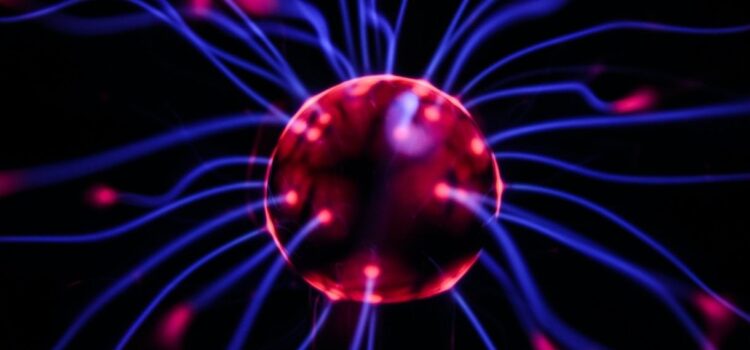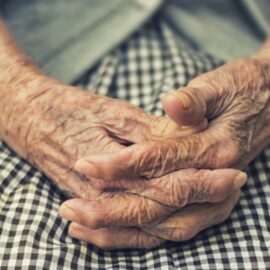

This article is an excerpt from the Shortform book guide to "The Willpower Instinct" by Kelly McGonigal. Shortform has the world's best summaries and analyses of books you should be reading.
Like this article? Sign up for a free trial here .
What are empathy neurons? How can empathy result in the spread of bad habits?
Mirror neurons are also referred to as empathy neurons and are responsible for keeping track of what others around us do, say, think, feel, and want. This instinct can also cause you to be positively or negatively influenced by those around you.
Keep reading to learn more about mirror neurons, empathy and influence.
How Social Connections Influence Willpower
We think our behaviors are under our own self-control, but we’re social animals, so we’re also subject to social control. No matter how independent we may think we are, we’re influenced by the people around us. Hang out with the right people and your willpower will increase; hang out with the wrong people and you’ll give in to temptation more frequently.
The research: A 2010 report from the National Bureau of Economic Research showed that one out-of-shape Air Force Academy cadet in a squadron of brand new cadets could bring down the fitness levels of the entire squadron. In other words, physical fitness is contagious—and so is the lack of it. In a much larger study, two scientists examined 32 years of health data from more than 12,000 residents of Framingham, Massachusetts. Specifically, they looked at weight gain, and what they discovered was an epidemic. Over time, obesity was spreading within families and groups of friends at an alarming rate. If your friend became obese, your risk of becoming obese increased by 171 percent.
Further analysis revealed that not just weight gain but also excessive alcohol consumption spread through social connections. But there was good news—self-control was also contagious. If a family member gave up cigarettes, their relatives had a much higher chance of doing the same.
Empathy Neurons
Whether we like it or not, both good habits and bad habits spread within social and family circles. Our brains have specialized cells, called mirror neurons or empathy neurons, that keep track of what others around us do, say, think, feel, and want. When we see someone trip and fall, we wince and “feel their pain” for a moment. It’s because our mirror neurons are creating a theater in which a trip-and-fall play is unfolding, and for a moment, we’re starring in the play. It almost seems like it’s happening to us. Mirror neurons are the basis of our empathy instinct, which makes us understand other people’s feelings.
Our empathy neurons can respond to other’s pain and also to their emotions. This is also why television shows utilize laugh tracks—your empathy neurons will think the show is funnier because we hear other people laughing. But this mimicry of emotions also comes into play when we see others indulging. If you watch your spouse eat a giant bowl of ice cream because he or she has had a hard day, your brain starts craving a reward, too—even if you don’t particularly like ice cream. Your brain is empathizing with the emotional craving that’s occurring in his or her brain—“I had a hard day, so I deserve to eat something delicious.”
It’s also why if you go out to lunch with a friend who orders a glass of wine, you’re more likely to order a glass of wine, too—even if your willpower goal is no alcohol before 6 p.m.
The research: Studies have examined what happens in a smoker’s brain when they watch actors in movies smoke cigarettes. The regions of the brain that control hand movements actually light up—the brain is preparing the hands to pull out a cigarette and light up. Studies have also shown that gamblers will bet more money after seeing someone else win, and most of us will spend more money when shopping with others and eat more calories when eating with others.
The oddest part of this self-control epidemic is that it isn’t activity-specific. Any time we see people behaving badly—whether it’s breaking rules, disobeying laws, or just indulging in unhealthy habits—it lowers our self-control. If your friend cheats on their taxes, you may be more likely to cheat on your spouse. If someone paints graffiti on your street, you may be more inclined to litter.
People You Love Exert the Most Influence
Not surprisingly, the people you know and love are bigger influences on your behavior than strangers. Social epidemics spread most aggressively through friend and family networks. In other words, you probably won’t “catch” a behavior from your neighbor or co-worker, but you might from a close friend or a sibling. That’s because our brains view people whom we love and cherish as not entirely separate from us. When our brains consider who we are, we include our friends and family in that picture. In a way, they’re part of our sense of self.
Willpower Hack: Mirror Your Own Goals, Not Someone Else’s
Since we can’t give up all of our social interactions, we must learn to dispel or at least diminish others’ influence on our behavior. Here’s one technique to help you stay focused on your goals: At the start of each day, spend a few minutes focusing on your goals. Consider the various temptations you face—especially social influences—that can dissuade you from pursuing them. Use this focusing time to become more self-aware and reinforce your resolve.

———End of Preview———
Like what you just read? Read the rest of the world's best book summary and analysis of Kelly McGonigal's "The Willpower Instinct" at Shortform .
Here's what you'll find in our full The Willpower Instinct summary :
- That willpower isn't a character trait but rather an innate instinct that's wired into our brains
- How marketers can use "neuromarketing" to influence you to purchase more
- How you can harness your innate willpower to achieve your goals






